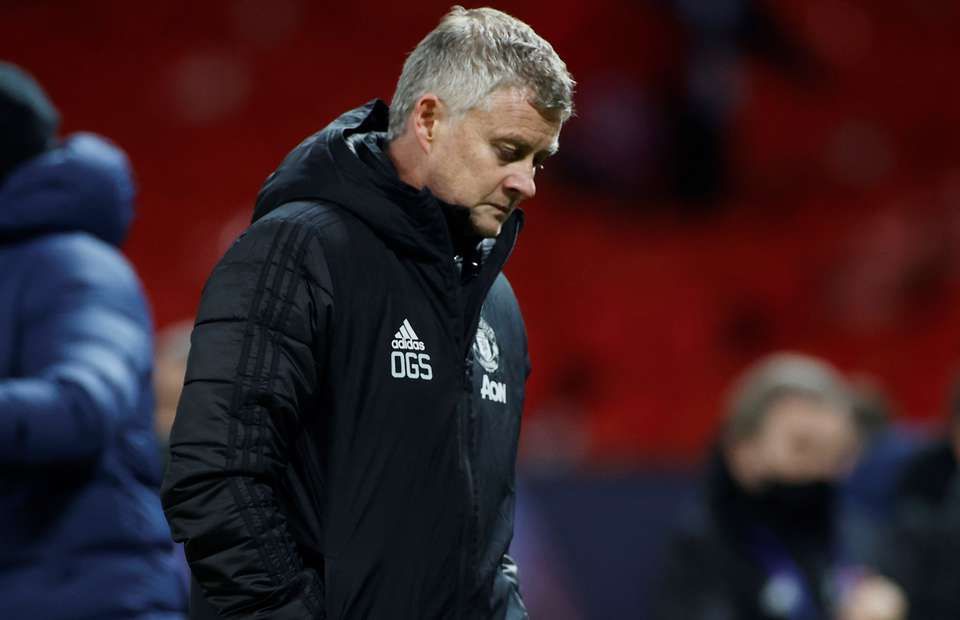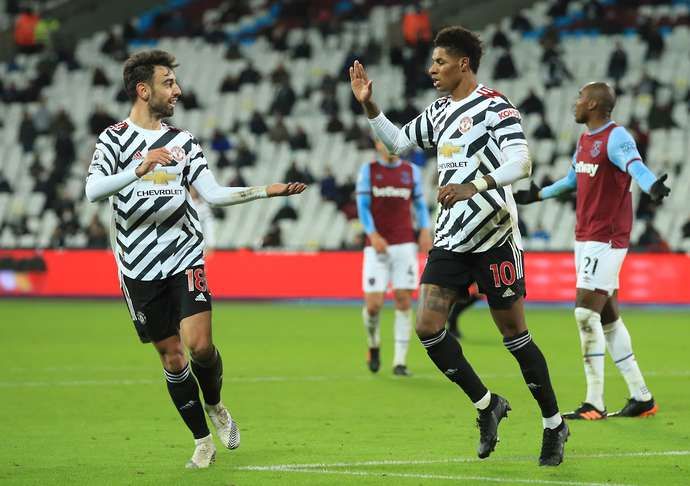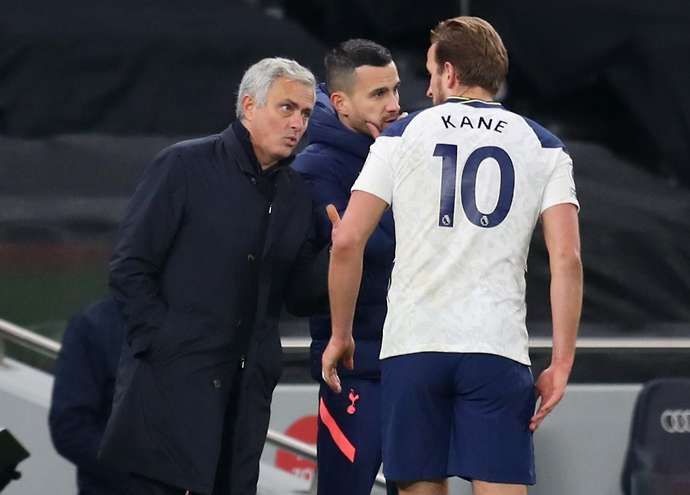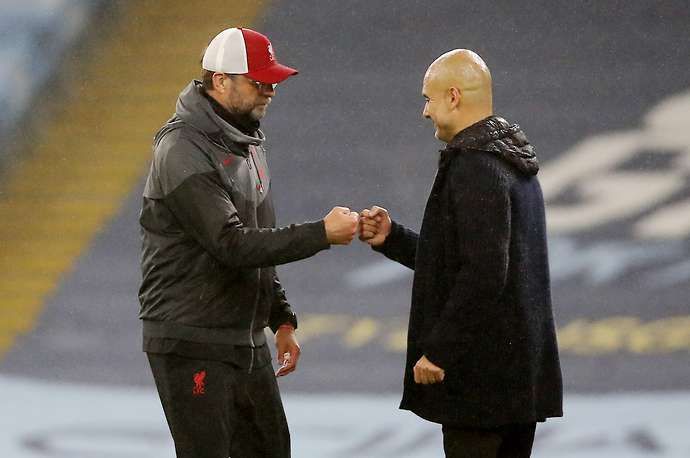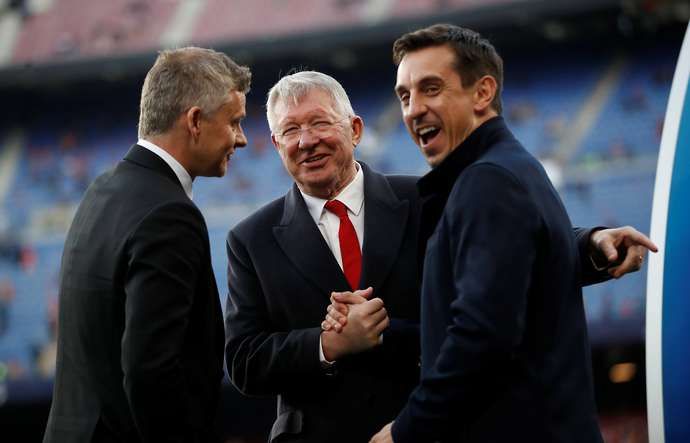An unstoppable second-half display sealed Manchester United three points at West Ham on Saturday, and yet the narrative surrounding the 3-1 win was shaped more like a lucky escape than a victory to be proud of.
That was the mood after the final whistle, as Gary Neville questioned how exactly United could play so brilliantly for the final half an hour after being so abysmal in the first 45 minutes at the London Stadium.
"How you can go from being so bad to so good… regularly? For it to continually happen, it is a mentality thing. Do they think they are better than they are? It's almost as if they need a real jolt to perform."
He’s got a point - United managed just three shots at goal in the first half, compared to twelve in the second - and it fits into a wider pattern of the Red Devils starting away games poorly, only to come back and win through moments of world-class ingenuity.
In all five of their Premier League outings on the road this season, United have conceded first and only in one - the eventual 3-1 win over Everton - have they enjoyed a lead at half-time.
And yet, we’re talking about a side that are only five points off the top of the table with a game in hand, that have won four Premier League games on the bounce and lost just one of their last seven.
In fact, since United’s 6-1 capitulation against Tottenham, they’ve averaged 2.3 points per game in the Premier League, scored 14 goals, conceded just six and kept two clean sheets.
West Ham, meanwhile, have drawn with or beaten Leicester, Wolves, Spurs and Man City already this term; in the context of 2020/21, a win over the Hammers is about as valuable as any other, regardless of how exactly its achieved.
Nonetheless, United still find themselves under the shadow of a looming question mark.
Manchester Evening News argued Bruno Fernandes, Marcus Rashford and Paul Pogba only paved over the cracks against the Hammers, while the headline of The Telegraph’s write-up included the words “two-faced”, “revival” and “dreadful start”.
To ignore the Red Devils’ woeful first 45 minutes against the Hammers would of course be naïve, but to focus on it in a way that dwarfs the match’s final outcome feels almost contrived.
After all, how shocked should we really be that United looked a completely different team once Ole Gunnar Solskjaer had subbed on arguably the best player in the Premier League, Fernandes, and the United star only second to him for top flight goal involvements this season in Rashford?
It’s hardly rocket science; take the two best players out of any Premier League team and they’ll inevitably struggle to produce their absolute best football.
That encapsulates the crux of this article - the bizarre double-standards applied to United when compared to their Big Six rivals.
This isn’t an apology for the Red Devils’ shortcomings, for it’s undoubtedly true their overall performances haven’t been as convincing as their results.
But why are United so mercilessly dissected under the microscope in such a continuously negative manner, when every Big Six club is suffering from their own inherent flaws this season.
Tottenham Hotspur may be top of the table, but their style of football is more comparable to Claudio Ranieri’s title-winning Leicester team than the Chelsea sides Jose Mourinho dominated the Premier League with in the mid-2000s - and this is despite the Spurs boss being allowed to spend £130m across two transfer windows.
All but five of their Premier League goals have been scored by Harry Kane and Heung-min Son. So are Spurs any less reliant on their key individuals than United are on Rashford and Fernandes?
Liverpool, albeit admittedly depleted by injuries, recently suffered a 2-0 defeat to Atalanta, could only draw against Brighton after an abysmal first half of their own and required an Andre Onana gaffe to beat Ajax.
Even when their squad was fully fit, they were battered 7-2 by Aston Villa, conceded three times to Leeds and drew 2-2 with what now looks like a decisively average Everton team.
Manchester City, excepting one 5-0 thumping of Burnley, have performed massively below expectations in most of their games and are miles away from the rip-roaring football of the last few seasons.
Chelsea, meanwhile, despite a summer spend of £222m and much of that money being devoted to attacking signings, have so far this season failed to score a single goal against any of their Big Six rivals in the Premier League.
Football is an industry of opinions and thus, depending on your own point of view, some of the above criticisms will inevitably seem more convincing, compelling or important than others.
But the point itself remains hard to dispute; every Big Six side has their shortcomings in what has so far been one of the most bizarre seasons in Premier League history, yet United’s are always the bigger talking points, the issues that end up spending far longer under the spotlight.
It also seems to be the case that for any other member of the Big Six, a victory is a victory - the manner in which it’s achieved is either irrelevant or celebrated as a factor underlining their title credentials.
For United, meanwhile, unless it’s a complete domination from start to finish, the post-match criticisms are usually far louder and longer than the praise.
Perhaps that’s an inevitable consequence of the incredible standards Manchester United set under Sir Alex Ferguson - although it’s quickly being forgotten how glorious comebacks were once heralded as an intrinsic element of the Red Devils’ DNA, rather than something to be ashamed of.
Perhaps it’s the result of having so many former players, including the aforementioned Neville - who is hypercritical in much of his analysis regardless of club - working in the media now, and thus there are simply more people talking about United across newspapers and television.
Or perhaps we’ve all bought into the many negative narratives surrounding United’s key figures - Solskjaer, Ed Woodward and Pogba - that it’s become our natural instinct to complain rather than congratulate.
While there are no doubt deep-lying issues at Manchester United that personnel at various levels of the club need to fix, the discrepancy in how the Red Devils are treated compared to their Big Six rivals only seems to be getting bigger.
Sometimes a victory needs to be celebrated as just that, rather than being turned into a stick to beat United with.



















